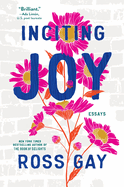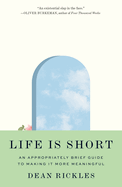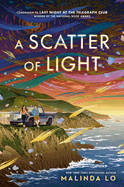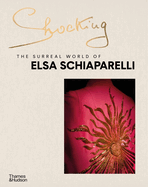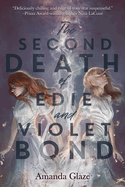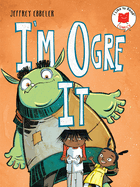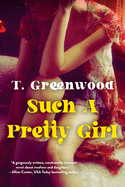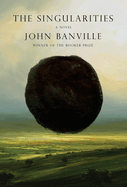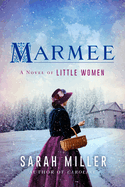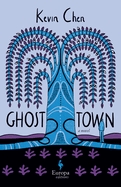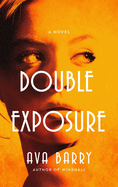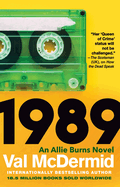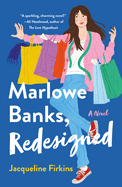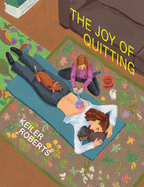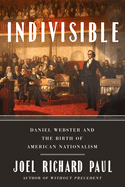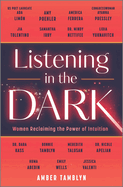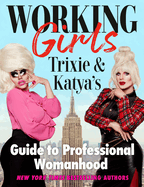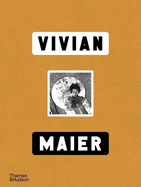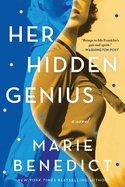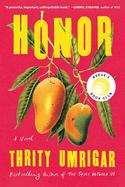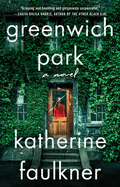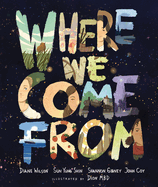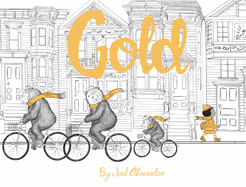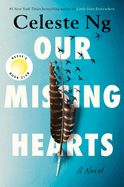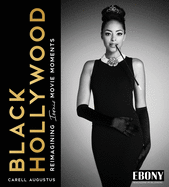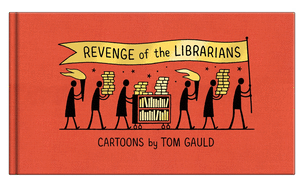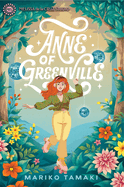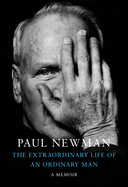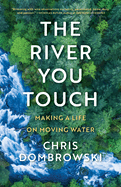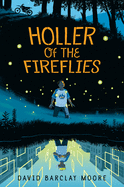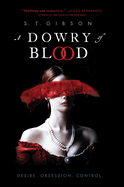Friday, October 28, 2022
Inciting Joy, Ross Gay's first book since his 2019 bestselling The Book of Delights, is reviewed this week--a collection of essays "that showcase the breadth of his interests and the vibrancy of his prose." We also review Life Is Short by professor of history and philosophy of modern physics Dean Rickles, "a meditative gem that is as intellectually astute as it is accessible"; and Malinda Lo's "powerful" A Scatter of Light, a YA companion to her 2021 NBA-winning Last Night at the Telegraph Club; plus so many more!
In The Writer's Life, Kwame Alexander, Newbery Medal-winning author of The Crossover, describes the origins of The Door of No Return, the first in a planned trilogy, and tells us why he believes this book "is going to enhance, increase, inspire and empower the imaginations of young people."
Such a Pretty Girl
by T. Greenwood
Seasoned novelist T. Greenwood's psychologically complex and lyrically written Such a Pretty Girl offers a glimpse into the controversial rise to fame of a child star in 1970s New York. Ryan Flannigan has built a bucolic life with her daughter in Vermont, outside the media's eye. But when a suggestive photo of her as a child is found in the possession of a pedophilic billionaire, Ryan must reevaluate the life she left behind in Manhattan's West Village and her determined, spotlight-obsessed mother, Fiona, who directed her career. As Ryan reconnects with old friends and revisits hauntingly familiar places, she is forced to remember the summer of 1977 and what happened the night of the fateful New York City blackout.
Carefully crafted around intersecting present and past plotlines, Such a Pretty Girl balances on the edge of womanhood and girlhood, revealing the strength and vulnerability of those always under the lingering gaze of men. Greenwood (Keeping Lucy; The Forever Bridge) does an expert job of constructing Fiona as a complex character who engages in toxic behavior but embodies just enough charm to draw in her daughter and readers alike. Meanwhile, Ryan's perspectives reveal the heartbreaking tenacity of a girl who longs for her mother. Perhaps most engaging, however, is Greenwood's atmospheric, lived-in portrait of 1970s New York. From the grease- and sand-encrusted restaurants of Coney Island to the sun-spotted, well-worn facades of the West Village, this snapshot is equal parts alluring and disturbing, nostalgic and insightful. --Alice Martin, freelance writer and editor
Discover: Emotionally evocative and cinematic, T. Greenwood's Such a Pretty Girl is a graceful meditation on the hidden structures of fame that have long traded in longing, exploitation and fantasy.
The Singularities
by John Banville
Fans of Irish novelist John Banville (Snow; Holy Orders, writing as Benjamin Black; Ancient Light) will recognize many of the characters, even one now using an assumed name, in The Singularities. They include Adam Godley Jr., son of the famous mathematician Adam Godley Sr., and young Adam's wife, Helen. Also returning is Freddie Montgomery, who committed murder in The Book of Evidence and returned in two of Banville's subsequent works. This time, intent on "total transformation," Montgomery calls himself Felix Mordaunt. He has been released from prison after "some twenty years of a mandatory life sentence" and has returned to Coolgrange, his childhood estate. Only now it's called Arden House, Godley's family lives there and Mordaunt returns to work as the family's driver. One of his fares is William Jaybey, whom the younger Adam has hired to write a biography of his father, celebrated for having developed something called the Brahma theory. But Jaybey has a long-held vendetta against the deceased Godley and plans to get revenge by "chipping away with mallet and chisel" at his reputation.
Intrigues follow and secrets are revealed in this exceptional work. Like many Banville novels, this one is heavier on descriptions than plot, but what exquisite descriptions: a gate at Arden House has "rust reminiscent of a dusting of roughly ground cinnamon" and gives "the impression of leaning dejectedly over itself, limp and blear-eyed, defeated by the years." The Singularities is like a carriage ride along a country lane: it proceeds slowly, affording ample time to admire the scenery. --Michael Magras, freelance book reviewer
Discover: Characters from past novels return in this intriguing story about a released prisoner, a country house, a mysterious family and well-kept secrets.
Marmee
by Sarah Miller
Sarah Miller brings the wise, patient mother of Little Women to vibrant, complicated life in Marmee, her fourth historical novel. As the Civil War rages, Margaret March must care for her four daughters while her husband, Amos, serves as an army chaplain. The novel opens with one of many scenes familiar to readers of Little Women, the March girls giving up their Christmas breakfast to feed a destitute German family. Miller's first-person narration adds a new layer: Marmee's deep conflict about asking her daughters to go without, even while she longed to help those less fortunate than her own family.
Miller (Violet and Daisy; Caroline; The Borden Murders) ably explores Margaret's inner struggles: her efforts to tame her temper; her mixed pride in and frustration with her girls; and her affection and worry for her husband, mingled with exasperation at his lack of concern for money. Readers see much of Margaret's work at the local charity rooms, as well as her relationship with their housekeeper, Hannah, and the guilt she harbors about a past incident that cost the March family their fortune. Miller balances these new additions with the familiar beats of Alcott's classic novel: Jo's writing "vortexes" and publishing journey; Beth's love for music and eventual illness; Amy's artistic aspirations; Meg's journey to marriage and motherhood; and the presence of Laurie, who becomes a surrogate brother and son. The result is a loving, dynamic portrait of a woman to be reckoned with, who balances deep care for her family with her own fierce desires to be heard, respected and loved. --Katie Noah Gibson, blogger at Cakes, Tea and Dreams
Discover: Sarah Miller reveals new layers to Little Women's complicated character Marmee in the vivid, warmhearted novel of the same name.
Mystery & Thriller
Ghost Town
by Kevin Chen, transl. by Darryl Sterk
Former actor turned award-winning writer Kevin Chen's Ghost Town is certainly cinematic, populated with unforgettable characters--living, dead and in between.
Welcome to Yongjing, "a rural backwater in central Taiwan," just as Ghost Month looms. The Chen clan is about to experience an unexpected reunion, drawn together by the prodigal appearance of the clan's youngest, Keith. Years earlier, a six-month writing residency in Berlin enabled Keith's escape from their abusive mother and homophobic community. He found love with T, which led to a registered partnership. Then suddenly T was dead, and Keith was imprisoned for murder. When Keith is released 10 years later, he returns to Yongjing, and what's left of his family.
Cliff and Cicada Chen had five daughters--Beverly, Betty, Belinda, Barbie and Plenty--trying to birth a son, then came Heath and finally Keith. All of them have grown to have complex lives, and into that maelstrom, with nowhere else to go, Keith arrives, with so many family secrets left to be bared and shared.
If the family's name is not a hint of autobiographical inspiration, Chen's (Three Ways to Get Rid of Allergies) afterword affirms plenty of additional overlaps: his Yongjing youth, his many sisters, his gay identity, his town's homophobia, his current Berlin home. Professor Darryl Sterk translates, his unconventional choices adroitly explained in his ending note. Chen divulges key events in multi-voiced, circular repetition, each time adding a little more information, as if to increase the circumference and take up more space. With each iterative reveal, Chen gloriously resurrects the dead--and emboldens the living. --Terry Hong, Smithsonian BookDragon
Discover: A cinematic, sprawling family epic unfurls with exceptionally crafted characters--living, dead and in between.
Double Exposure
by Ava Barry
Two young women of similar backgrounds--wealthy, privileged and with families who have disintegrated--are drawn to each other in Double Exposure, the second neo-noir novel from Ava Barry (Windhall). This provocative, character-driven drama manages to keep its surprising twists in focus while also giving readers a lyrical look at Los Angeles.
Private investigator Rainey Hall, along with two friends, co-owns an all-female boutique agency that has been increasingly successful because of its exclusivity. Rainey has a soft spot for needy clients such as Melia van Aust, whose fragility is palpable. Four years ago, Melia's wealthy parents were brutally murdered in Slant House, the family hillside mansion; her brother, Jasper, vanished that same night. Melia still bears the scars of that attack. Having returned to Slant House, Melia wants Rainey and her crew to track down Jasper and find out who is sending her threatening letters. Melia has never been able to escape the notoriety of the murders, preferring to stay inside so she won't be recognized. Rainey feels a kinship: her father was a famous composer, and she spent her childhood on world concert tours as a violin prodigy. The two women become lovers as Rainey is caught in the net of Melia's emotional frailty; events are exacerbated by the fact that Rainey's lawyer controls her life--and her fortune. A stupendous turn adds an intense level of terror to Double Exposure.
The women's psyches parallel Barry's evocative look at Los Angeles where "even in private homes, the city pressed in at the edges, reminding you of its presence." --Oline H. Cogdill, freelance reviewer
Discover: A private investigator becomes involved with a fragile client whose family was murdered four years before in this tense character-driven thriller.
1989
by Val McDermid
Val McDermid's ambitious project of chronicling each decade's highlights, showing how big and small events relate to individuals, takes another leap forward with the enthralling 1989, the logical follow-up to 1979. Through the lens of investigative journalist Allie Burns, McDermid (How the Dead Speak; Broken Ground; The Vanishing Point) dramatizes how major events influence subsequent decades. Setting her novels at the end of each decade allows McDermid--and Allie--to reflect on what has transpired during the past 10 years and examine how the world changes.
The newspaper's wealthy, narcissistic owner has reassigned Allie from her investigative reporting job in Glasgow, Scotland, to a post in Manchester, England. The job and Manchester suit her; she and her partner, Rona Dunsyre, create a life filled with friends. Rona's family accepts her relationship with Allie, though Allie's family does not. Allie, as a journalist, has a window on major world events, which McDermid seamlessly incorporates into her work, including the AIDS crisis and how pharmaceutical companies withheld drugs; East Berlin and the Soviet Union; the bombing of Pan Am flight 103 over Lockerbie; the deadly football riot in Sheffield.
This second novel in the Allie Burns series delves even more deeply into Allie's psyche. Covering all these tragedies has taken a psychological toll, and she reevaluates her career choice. Allie and Rona's relationship deepens, with Rona emerging as even more essential to Allie's personal and professional life. A playlist of McDermid's personal top 40 music enhances 1989, a novel that accentuates the decade's advances and failures. --Oline H. Cogdill, freelance reviewer
Discover: In Val McDermid's novel offers a personal perspective on major world events of the 1980s through the lens of an insightful journalist.
Romance
Marlowe Banks, Redesigned
by Jacqueline Firkins
In this sweet and clever Hollywood romance, an anxious, clumsy costume designer and a sexy television superstar find themselves falling for each other, in spite of the Twitter hashtags and angry fans trying to keep them apart. Making her debut in adult fiction, Jacqueline Firkins, a costume designer and author of two young adult novels (How Not to Fall in Love; Hearts, Strings, and Other Breakable Things), puts her theater skills to use in Marlowe Banks, Redesigned.
Marlowe Banks was a costume designer in the New York theater world--until the play she was working on flopped and her engagement fell apart. She panics and flees to Los Angeles, much to her parents' dismay, taking a job as a lowly costume production assistant on a high-budget television show starring Hollywood's favorite bad boy, Angus Gordon. But then, through a series of flukes, Marlowe ends up playing a small role in an episode of the show. After interacting with Angus more and finding confidence in the feedback she receives on her acting, Marlowe realizes that there's more to Angus than his sexy persona and that maybe she is capable of more than creating catastrophes.
Charming, funny and thoughtful, Marlowe Banks, Redesigned is both a romance and the story of a woman finding her own voice after her parents, previous relationships and workplaces have all squelched her. Fans of Katherine Center's The Bodyguard or Annabel Monaghan's Nora Goes Off Script are sure to love Marlowe Banks, Redesigned. --Jessica Howard, freelance book reviewer
Discover: In this introspective romance, a clumsy costumer designer and a sexy leading man fall for each other on the set of a television show.
Graphic Books
The Joy of Quitting
by Keiler Roberts
Ignatz Award-winner Keiler Roberts (My Begging Chart) collates a decade of work from five previous titles--Powdered Milk (2012), Miseryland (2015), Sunburning (2017), Chlorine Gardens (2018) and Rat Time (2019)--in The Joy of Quitting, a summary of much of her life thus far. Reading Roberts is not unlike stumbling on someone's rather private diary.
Motherhood is an essential topic, starring precocious daughter Xia, who knows the alphabet at age two and "poops a 'T' "; is allowed to say naughty words in the bathroom (but breaks that rule often); and who thanks Roberts for drawing her into her books. Roberts reveals her physical and mental struggles with multiple sclerosis, her bipolar challenges and her therapy sessions. Scrutiny extends to all her relationships: she brusquely cuts off dinner conversation with her husband when a topic has been repeated "at least three times" and compares herself to a friend by saying, "I guess I'm better off than you."
"I think I started making comics," Roberts confesses, "so I could stop fearing the loss of my irreplaceable things." By this she means not just her favorite vodka glass but, even more so, the intangible moments: "the combined smells of bleach and soft serve" at Dairy Queen; conversations with her dog; her 14th anniversary of a "marriage [that] has been an eternity." Her seemingly unfiltered comics, presented as crisp black-and-white line drawings with and without panels, are an antithetical--perhaps even antidotal--reaction to the glossy presentations ubiquitous on social media. Little is off-limits here as Roberts (literally, visually) bares all, certain to induce welcome nods of utter understanding from many readers. --Terry Hong, Smithsonian BookDragon
Discover: Keiler Roberts compiles her life thus far in a collection of poignant and humorous comics.
Biography & Memoir
Uphill
by Jemele Hill
Jemele Hill--a longtime sportswriter, former SportsCenter anchor and current staff writer at the Atlantic--brings readers Uphill, a memoir that captures her journey, without ever compromising her principles, to the highest echelons of her profession, even in the face of criticism from a former president of the United States and, perhaps more terrifyingly, her mother. A Black woman raised by a single mother in Detroit, Hill grew up with a keen awareness of the failures of this country and the challenges it presented to her. She was clear-eyed, undaunted and driven by an indefatigable desire to succeed.
Hill is a skilled writer with a sharp eye for salient details and a master of sharp turns of phrase. She possesses great aptitude for in-depth character development and analysis. Powering these refined skills is a gregarious spirit and genuine wisdom. The effect is instant trust between her and her readers, which is essential for any memoir, and assurance that what is being told is the unvarnished truth.
Mercifully, not all truths are hard and solemn: Hill revels in joy and laughter. Uphill is shot through with witticisms, hilarious anecdotes and zany encounters. And she refuses to sugar-coat what it took to work her way up as a Black woman in the fiercely competitive, predominantly white and male world of sports journalism. But with its compelling stories--the "inside baseball" from a long career in sports media, told with great candor, thoughtful soul-searching and a sense of humor--Uphill brings insight and laughter to nearly every page. --Walker Minot, freelance writer and editor
Discover: This insightful memoir from Jemele Hill explores what takes to make it in the fiercely competitive, predominantly white and male world of sports journalism.
History
The Abyss: Nuclear Crisis Cuba 1962
by Max Hastings
In The Abyss, popular historian Max Hastings (Operation Pedestal; Operation Chastise; Vietnam) delivers a magisterial re-evaluation of the 1962 Cuban Missile Crisis for general readers and a "new generation... outside the defense and academic communities." Hastings, contextualizing the geopolitical situation in 1962 as it existed for the U.S., the Soviet Union and Cuba, addresses one of the main points about the crisis that is often "missed": it was always a "political issue, not a strategic one."
After President John F. Kennedy's Bay of Pigs debacle, the Soviet Union--under the leadership of its "boorish" First Secretary Nikita Khrushchev--resolved to defend Cuba from any future invasions by secretly shipping Soviet nuclear weapons to the island and its revolutionary prime minister, Fidel Castro. Thus ensued almost two weeks of nerve-shattering brinkmanship between the world's two nuclear superpowers, which Hastings details through primary sources and research. He concentrates on "the contradiction at the heart of Khrushchev's strategy" that pitted his knowledge of the Soviet Union's likely annihilation (at the hands of U.S. nuclear superiority) with the aim of exploiting the West's terror of nuclear war--all to gain tactical successes abroad.
This people-focused history weds colorful portraits and sharp observations: both Kennedy and Khrushchev were "profoundly apprehensive" about the crisis, while Castro "was exalted by it. Addicted to drama, he saw himself as his people's Man of Destiny." The Abyss, impressively organized and enthralling in its intensity, is another satisfying offering from Hastings and is replete with lessons for today's volatile world. --Peggy Kurkowski, book reviewer and copywriter in Denver
Discover: The Cuban Missile Crisis, a defining moment of near catastrophe for an older generation, is brought to terrifying life in this accessible account from historian Max Hastings.
Indivisible: Daniel Webster and the Birth of American Nationalism
by Joel Richard Paul
"Liberty and union, now and forever, one and inseparable!" Daniel Webster's famous epigram, according to historian Joel Richard Paul in Indivisible, is just one of the countless contributions the American statesman made to helping unite the United States. Paul (Without Precedent; Unlikely Allies) reintroduces a new generation to Webster--a man often eclipsed in history by his contemporary, Abraham Lincoln--in this impressively researched and engaging study.
Universally acknowledged as "the 'guardian' of the Constitution, the greatest orator of the English language, and the finest constitutional advocate in our history," Webster was one of the most influential politicians of his age. His long career as an "evangelist for the Union" inspired and enraged fellow citizens in equal measure. Paul writes a larger history than the subtitle implies, spanning the development of American nationalism from 1812 to 1852; indeed, readers will learn as much about the presidencies of John Quincy Adams, Andrew Jackson and John Tyler as they will about Webster. However, Paul highlights the relevance of Webster as the scintillating orator who, with great emotion, swept his listeners away from their "dominant instinct" of regionalism toward one national identity. Webster, a man of failed presidential ambitions and sometimes ill-advised associations, possessed true talents in "the power of his imagery" in speeches that espoused his nationalist vision. Indivisible, which is not a biography of Webster in any sense, will appeal to history readers who want to learn how "while the Union was falling apart, our American identity was taking shape." --Peggy Kurkowski, book reviewer and copywriter in Denver
Discover: A 40-year history of the birth of American nationalism is set in brilliant relief alongside the soaring oratory of its most ardent and lifelong proponents, lawyer-turned-politician Daniel Webster.
Essays & Criticism
Inciting Joy: Essays
by Ross Gay
If the subject matter of his books is any indication, poet Ross Gay has a single-minded focus: making the world a better place. Following on his bestselling 2019 collection, The Book of Delights, Gay returns with Inciting Joy: Essays, a collection of 14 energetic reflections that investigate how to "make joy more available to us" and "how joy makes us act and feel."
In the service of this goal, Inciting Joy surveys an assortment of topics drawn from Gay's own experience that display his gift for intensely observing the world around him. They include his involvement in the creation of a community orchard in his hometown of Bloomington, Ind., and his appreciation for the standup comedy of Richard Pryor.
But the volume isn't a catalog of unalloyed pleasure. In "Through My Tears I Saw (Death: The Second Incitement)," Gay recounts the death of his father, a man with whom he had a difficult relationship, from liver cancer at age 58. He returns briefly to that event in the collection's penultimate and longest piece, "Grief Suite (Falling Apart: The Thirteenth Incitement)," a wide-ranging survey of male emotions and his own struggle with mental health issues.
Gay concludes Inciting Joy with an essay on gratitude, describing Aretha Franklin's rendition of "Amazing Grace," in a documentary of the making of her record of the same name. One can almost hear the ecstatic voices of a gospel choir in Gay's admonition that "we belong not to an institution or a party or a state or a market, but to each other. Needfully so." It's a fitting ending to a consistently uplifting book. --Harvey Freedenberg, freelance reviewer
Discover: This lively set of 14 essays from a talented poet considers how to bring more joy to our lives.
Listening in the Dark: Women Reclaiming the Power of Intuition
by Amber Tamblyn
Amber Tamblyn's Listening in the Dark: Women Reclaiming the Power of Intuition celebrates the ancient, spiritual wisdom of the inner voice and guides readers towards harnessing and embracing their intuitive intelligence. Showcasing the 15 varied stories by women across the professional spectrum, including actress and director Amy Poehler, lawmaker Ayanna Pressley and political strategist Huma Abedin, the book's impressive assemblage of writers delivers a reassuring message: intuition, that deep sensory awareness or gut feeling, is a gift accessible to everyone. Paying attention to that interior wisdom, which previous generations of women have done, has the power to heal trauma and transform lives.
Tamblyn (Era of Ignition; Dark Sparkler) is an author and actress with multiple books and awards to her name. A cultural critic and passionate women's rights advocate, Tamblyn encourages readers in her introduction to take the time to pause, be still and find a path within to guide them "when a defining moment in your life calls for deep introspection, when you are pushed to change, to fight, to leave, to stay, or to speak." The activation of intuition presents differently in every woman, as the stories (divided into sections introduced by Tamblyn) set forth in this anthology demonstrate. Ada Limón, the 24th poet laureate of the United States, is guided by dreams, whereas for Dr. Nicole Apelian, an anthropologist and contestant on the television series Alone, communion with nature provides the solitude necessary to spark intuitive thinking.
Tamblyn's inspirational road map for accessing one's intuition includes tools for pushing past old fears and letting go of unrealistic expectations toward a restorative sense of inner calm. --Shahina Piyarali, reviewer
Discover: Amber Tamblyn's inspirational road map about women accessing and deploying their intuition includes 15 intimate essays by writers as diverse as actress Amy Poehler and Congresswoman Ayanna Pressley.
Psychology & Self-Help
Life Is Short: An Appropriately Brief Guide to Making It More Meaningful
by Dean Rickles
Dean Rickles is a professor of history and philosophy of modern physics at the University of Sydney in Australia. He's written many profound and enlightening books about the scientific philosophies of quantum gravity, physics, string theory and more. In Life Is Short, he merges his passions to deliver a deeply engaging and thought-provoking study of life and how its finite nature serves hidden depths that can lead to a much more rewarding and fulfilling existence.
People chronically compare their lives to others, procrastinate and fixate on the future, whether it's anticipation about careers or social aspirations. Rickles believes modern life is riddled with many choices that easily sway people to lean toward keeping their options open in a "kind of limbo, waiting for life to happen." However, in living this way, how much of life is spent truly unlived? In eight chapters, Rickles (Covered with Deep Mist; The Philosophy of Physics) probes issues of life and death, self-knowledge, conscious and unconscious decision-making and the role of obstacles. Under a philosophical microscope, he examines how these aspects, among others, serve to illicit greater meaning and purpose amidst the brevity of life. Wisdom from great thinkers throughout the ages--including Seneca and Rousseau, Nietzsche and William James, Carl Jung and even Woody Allen--augments this concise, well-conceived and thoroughly researched narrative.
Life Is Short is a meditative gem that is as intellectually astute as it is accessible. Readers will find much to help them in their efforts to live more mindfully--and with significantly greater appreciation. --Kathleen Gerard, blogger at Reading Between the Lines
Discover: A professor of history and philosophy of modern physics delivers a thought-provoking, deeply enriching study about how the finite nature of existence gives true meaning and purpose to life.
Humor
Working Girls: Trixie and Katya's Guide to Professional Womanhood
by Trixie Mattel and Katya Zamolodchikova
Working Girls, the second book from RuPaul's Drag Race alumnae Trixie Mattel and Katya Zamolodchikova, is hilarious and offers, according to Katya, "the most innovative and cutting-edge techniques and practices for professional advancement, from two trustworthy titans of talent." Trixie and Katya (Trixie and Katya's Guide to Modern Womanhood)--the drag personas of Brian Michael Firkus and Brian Joseph McCook, respectively--are polished, clever writers and, with every book, gain a stronger foothold on Miss Manners's throne. They offer outrageously funny advice that is often surprisingly thoughtful and practical.
The duo covers all aspects of work, from job interviews to retirement. They offer delightfully droll responses to interview questions. "What is your biggest weakness?" could be met with "I can only hold my breath underwater for two minutes." And "in your chair, wearing your clothes, and asking these very questions" could be a response to "Where do you see yourself in five years?" They translate office lingo; provide advice for navigating discussions about raises; and profile notable "girlbosses," such as Miranda Priestly ("every gay masochist's Mommie Dearest fantasy") and Elvira ("basically the first mainstream drag queen"). And they explain office politics, remote work and firing someone (in a chapter subtitled "It's Not Me, It's You."). Trixie also walks readers through every job she's been fired from: "Pretty much the only job I haven't been fired from is this one, and that's because I'm self-employed," she writes.
Albert Sanchez and Pedro Zalba's vibrant photographs are a visual treat. Katya is especially chameleon-like when spoofing the looks of the leading ladies of Basic Instinct, Working Girl and Mad Men. --Kevin Howell, independent reviewer and marketing consultant
Discover: Written with charisma and nerve, the second book from RuPaul's Drag Race alumnae Trixie Mattel and Katya Zamolodchikova is a side-splittingly funny guide to finding, keeping and leaving a job.
Art & Photography
Shocking: The Surreal World of Elsa Schiaparelli
by Marie-Sophie Carron de la Carrière et al.
Elsa Schiaparelli (1890-1973) and Coco Chanel may have been rivals in the field of 20th-century couture, but one of the ways the former distinguished herself was by incorporating surrealist elements into her work. This is hammered home in the illuminating and grand Shocking: The Surreal World of Elsa Schiaparelli, whose contributors take the position that the Italian designer should assume a place among the surrealist artists of her time.
The book--a companion to the Musée des Arts Décoratifs, Paris, exhibition Shocking! The Surreal Worlds of Elsa Schiaparelli--comprises five essays and around 30 descriptive sidebars introducing pieces from the exhibition. Readers learn that Schiaparelli employed trompe l'oeil elements even before she collaborated with some of the leading surrealist luminaries, including Salvador Dalí, with whom she created her famous shoe hat and her infamous lobster dress. And if that wasn't proof enough of Schiaparelli's surrealist bona fides, Man Ray was on the scene to photograph her work.
Ray's black-and-white shots are among the book's stunning visuals, which include design drawings and color photographs of Schiaparelli's creations. Not even the most dedicated fashionista will leave Shocking without a deeper sense of Schiaparelli's effort to make clothes that encouraged people to think. As contributor Marie-Pierre Ribère puts it, "her creations were intended to not just be simple couture garments but rather intellectual works that occupied a special place in surrealist iconography." Now with Shocking, they can occupy a special place in a library--in either the art or the fashion section. --Nell Beram, author and freelance writer
Discover: The contributors to this illuminating and grand illustrated offering demonstrate that the Italian designer Elsa Schiaparelli should assume a place among the surrealist artists of her time.
Vivian Maier
by Christa Blümlinger et al.
To learn all about Vivian Maier (1926-2009)--the great American street photographer whose work was unknown until its discovery two years before her death in her Chicago storage space--readers would do well to consult Ann Marks's Vivian Maier Developed: The Untold Story of the Photographer Nanny. And then, for those who want sheer retinal pleasure, there's Vivian Maier. As contributor Anne Morin puts it, the photographer "lingered on the residual moments in social life to which no one pays attention."
Vivian Maier groups more than 200 black-and-white and color photographs, most taken in the mid-1900s in New York and Chicago, into themed bundles: "Gestures," "Cinematic," "Childhood" and so on. In "Forms," a pair of work gloves on the ground resembles severed hands. "Streets" captures city kids and commuters, people reading newspapers and sailors and other men in uniform. Maier is a sort of Dorothea Lange of the city, her human subjects a racially and economically mixed bunch. When Maier's subjects occasionally signal their notice of her camera, they know better than to give her a fabricated smile--that's not what she's after.
A hallmark of Maier's work is the way it seems utterly bereft of the artist's ego. Is it a tragedy that her photographs were unknown until the tail end of her life? The section "Self-Portraits" would seem to suggest not. Maier tended to shoot herself in mirrors, looking away, in silhouette and otherwise collaborating with the apparent opinion of the world that she wasn't really there. --Nell Beram, author and freelance writer
Discover: This pleasing collection of the great American street photographer's work shows her to be a sort of Dorothea Lange of the city and an artist virtually without ego.
Now in Paperback
Her Hidden Genius
by Marie Benedict
In Her Hidden Genius, Marie Benedict once again illuminates a woman overlooked by history, as she did with the neglected brilliance of Hedy Lamarr in The Only Woman in the Room and Mileva Maric in The Other Einstein. Benedict's sixth novel presents an accessible story of physical chemist Rosalind Franklin's breakthrough DNA discoveries, as well as her bold presence in male-dominated mid-20th-century science.
Despite her family's pleas, Franklin leaves postwar London in 1947 for Paris--"a place where the Nazis... once governed," her father laments--to work as a researcher with X-ray crystallography. Her lifelong mantra guides her: "Focus on the science." Though her research is successful and Paris is "the only place" she ever "fit in," an awkward romance with a colleague prompts her return to London. She thrives in the King's College lab but endures misogyny and disrespect, addressed as "Miss Franklin" or the dismissive "Rosy" rather than "Doctor." More disturbing are the obvious appropriations of her work, groundbreaking photographic evidence of her helix theory, by fellow scientists seeking to claim the discovery of the structure of DNA. In fact, three of her peers won the 1962 Nobel Prize for DNA research; she was not acknowledged.
"I am a scientist, first and always," Franklin declares, but she was also a good friend, a loyal daughter and an enthusiastic hiker. Benedict (The Mystery of Mrs. Christie) presents a complex woman, while foreshadowing her fatal illness--suggesting her strong work ethic led to dangerous X-ray exposure. Her Hidden Genius is an overdue testimony to a fascinating scientist. --Cheryl McKeon, Book House of Stuyvesant Plaza, Albany, N.Y.
Discover: Marie Benedict's sixth novel is an overdue portrait of Rosalind Franklin, who played an integral role in the discovery of DNA while enduring chauvinism in her commitment to science.
Honor
by Thrity Umrigar
Indian-American novelist Thrity Umrigar (The Secrets Between Us) brings a wise, compassionate lens to a brutal subject in Honor, her ninth novel for adults.
On vacation in the Maldives, journalist Smita Agarwal gets a call from a friend and colleague: Shannon has been badly injured and needs Smita's help. Shannon wants Smita to pick up a story: a court case brought by Meena, a young Hindu mother, against her two brothers, who killed Meena's Muslim husband. Though Smita is an experienced gender issues reporter, this story tramples her attempts at objectivity, especially as she comes to know Meena and her small daughter, Abru.
Meena's story drives the novel's plot, but the narrative ultimately turns on Smita's experience: her decision to stay and cover the story, her evolving relationship with Shannon's friend Mohan, her fierce and complicated feelings for the country of her birth. Having successfully avoided India since leaving it at age 14, Smita is forced to confront the layers of contradictions in her homeland: at once beautiful and maddening, modern and stubbornly mired in ancient traditions.
Umrigar sharply portrays the contrasts between cosmopolitan Mumbai, Smita's relentlessly American sensibility and the much more traditional practices that govern life in villages like Meena's. The rights of women are, of course, a central theme, but Umrigar also digs into religious strife, the challenges of loving one's country, and the agonizing slowness of trying to change any legal system. Full-bodied and insightful, Honor is both a page-turning account of a horrific family drama and a meditation on the complexities of love--both personal and national. --Katie Noah Gibson, blogger at Cakes, Tea and Dreams
Discover: Thrity Umrigar's ninth novel weaves feminism, nationalism and romance together with the story of an honor killing.
Greenwich Park
by Katherine Faulkner
Family, friendship, deception and doubt permeate Greenwich Park, British journalist Katherine Faulkner's debut novel. The suspense is heightened by the risk to three pregnant women and their babies, linked by family as well as secrets.
The mystery begins with an "Afterward" section on page one of Faulkner's story, an unsigned letter to Helen from Her Majesty's Prison that says "I hope you know I never meant for things to end the way they did." The plot then unfolds from Helen's first prenatal class. Twenty-four weeks pregnant, she's on maternity leave, bored and drawn to overly friendly Rachel, in spite of her painted, chewed nails, her too-dyed hair and her "wolfish" smile. Ignoring a sense of foreboding, demure Helen accepts Rachel's "coincidental" insinuations into her days, as Helen's husband is distracted by work, and her brother and sister-in-law, Serena, who is also expecting, become oddly blasé toward her.
Alternating first-person narratives from Helen, Serena and their family friend Katie, a journalist, abound with foreshadowing and clues, in a complex story that invites speculation: Who became the prisoner, and what was the crime? Brief descriptions of rushed trysts between unidentified lovers in the leafy recesses of Greenwich Park and recurring reflections on an event a decade earlier add intrigue.
Faulkner's psychological thriller is precise and tight, as unreliable narrators present suspicious twists. One credible voice and a comforting summary slowly ease the meticulously crafted suspense of this chilling, fast-paced tale. --Cheryl McKeon, Book House of Stuyvesant Plaza, Albany, N.Y.
Discover: A fast-paced British thriller speculates on a crime involving a pregnant woman, her family and a suspicious interloper.
Children's & Young Adult
A Scatter of Light
by Malinda Lo
Malinda Lo follows up her 2021 National Book Award-winning YA novel, Last Night at the Telegraph Club, with the companion novel, A Scatter of Light, which takes place in 2013 and tells the powerful story of one young woman's life-changing summer of self-discovery.
Eighteen-year-old, half-Asian Aria Tang West was supposed to spend her final summer before college "on Martha's Vineyard with my friends, not in the remote woods [of California] with my grandmother." She expects a few forgettable months, until she befriends Steph, her grandmother's gardener. "Boyish" 20-something Steph inspires confusing feelings for Aria--"a sweet ache that I was embarrassed to feel"--even as Aria befriends Steph's girlfriend, Lisa, and the other members of their working-class queer community. Against a verdant, sun-drenched California backdrop, Aria reevaluates her desires: who she wants to be and who she wants to be with.
Lo's novel explores the complexity of queer identity through a sex-positive lens. Flashbacks to Aria's past sexual encounters reveal her struggle distinguishing between her own desires and social expectations. Lo vividly conveys the giddy euphoria of a teenage crush while also recognizing the fraught nature of Aria and Steph's mutual attraction when Steph is in a relationship with someone else. And yet A Scatter of Light does not make moral judgments about its characters--Aria's foibles and mistakes are what make her a compelling protagonist.
Both newcomers and longtime fans of Lo's work should enjoy this narrative of a young woman coming to understand herself and her wants better. --Alanna Felton, freelance reviewer
Discover: The companion novel to the National Book Award-winning Last Night at the Telegraph Club is an engrossing story of a young woman exploring her queerness during one summer in 2013 California.
The Second Death of Edie and Violet Bond
by Amanda Glaze
Jam-packed with sisterly love, 19th-century Spiritualism, romance, mystery and nascent feminism, The Second Death of Edie and Violet Bond is a delicious historic novel for 21st-century book lovers of all stripes.
Seventeen-year-old twins Edie and Violet have inherited their mother's gift of channeling spirits (Violet) and crossing the threshold between life and death (Edie). When their mother dies under mysterious circumstances, the young women run away from their minister father who plans to commit them to Sacramento's Asylum for the Insane because of their "unnatural" abilities. Violet and Edie join a traveling Spiritualist troupe in which the female performers are mostly expected to put on a good show, sending well wishes from the afterlife to grieving loved ones left behind. Edie and some of the other young ladies in the troupe decide to use their powers for change by "channeling" great minds like Aristotle or Benjamin Franklin: "As long as they were dead--and preferably male--Edie could give a lecture on almost any topic she desired, and the audience would eat it up." Then mediums around the city start vanishing and a strange dark force begins appearing when Edie opens the Veil into death. The twins will have to use their actual powers--not their influence--to keep the ones they love safe.
Inspired by her great-grandmother Edie Bond and Edie's twin sister, Violet (both spirit mediums), this debut novel from Amanda Glaze gives readers an energetic and exciting story that offers both passionate philosophical discourse and spooky séances. --Emilie Coulter, freelance writer and editor
Discover: Spirit medium sisters fight back against 19th-century patriarchal attitudes and murderous death shadows in a pleasingly shivery novel.
I'm Ogre It
by Jeffrey Ebbeler
I'm Ogre It is a hilarious and inspiring comic book ode to creative fun without screens, just right for young readers who might need the tiniest boost to become bookworms.
Izzie's big brother Ollie is really, really into video games, specifically Smash Tower, which features monsters, robots and evil fairies with a Stinking Swamp to navigate and a Tipping Tower to climb. He's so into it that he's gotten rid of most of his beloved old toys, much to Izzie's dismay. "That is baby stuff. I am over it," he tells his sister, a brown-skinned girl with gravity-defying blue-black pigtails, and her new friend Tim, a sweet green ogre who has just moved into the cave next door. Enterprising Izzie and Tim begin emptying Ollie's room of his remaining possessions, while Ollie natters on about his game. When he finally looks up to an empty room and goes searching for his sister, he discovers a real-life obstacle course, made up, on closer look, of all his discarded toys and furniture.
While no kid likes to be nagged about putting down the devices, any kid is likely to adore the wild and inventive IRL version of Ollie's video game--message subtly received. Simple language and delightful, brightly colored artwork make this I Like to Read Comic particularly appealing to emergent readers. Jeffrey Ebbeler, prolific illustrator and author of other titles in the series (Kraken Me Up and A Giant Mess), has created a winner, no tech needed! --Emilie Coulter, freelance writer and editor
Discover: In this smart, funny, tremendously entertaining comic book for emergent readers, a girl and her ogre pal show the girl's video game-obsessed brother a new/old way of having fun.
Where We Come From
by Diane Wilson, Sun Yung Shin, Shannon Gibney, and John Coy, illus. by Dion MBD
In this dreamy mosaic of stories, four authors share their family histories, spirituality and cultures from ancient times to the present, lyrically capturing the moving and endless variety of American experiences.
The far-reaching and poetic Where We Come From explores the multitudes of identity that make up every individual. Diane Wilson (The Seedkeeper), Sun Yung Shin (The Wet Hex), Shannon Gibney (See No Color) and John Coy (Hoop Genius) begin their individual stories as one: "We come from single cells evolving over billions of years as did all life on Earth--bacteria, trees, animals!" Over subsequent engagingly illustrated pages, the authors move through time, still as a united "we." The voices then divide into four and work toward present days, taking turns (in first-person singular now) chronicling their origins as Dakota, Black and Irish American, Korean American, and Irish and Scottish American.
The digital art of Indonesian illustrator Dion MBD (Every Day: The Graphic Novel) provides a warm and layered foundation for the developing stories. He uses light and shadow to lovely effect, and weaves almost mystical elements into the imagery. Rather than creating one tightening thread that brings the narratives together into a single American story, the overall feel of Where We Come From is that of a glorious hodgepodge. Back matter elaborates on the specific nonfiction details of the stories and illustrations, providing context and a fuller background to the poetic, mystical-sounding text.
This beautifully illustrated paean to the endless variety of American experiences is a terrific response to the insensitive query: "No, but where do you really come from?" --Emilie Coulter, freelance writer and editor
Discover: This collaboration of American voices offers an unusual and honest look at the complexity of identity.
Gold
by Jed Alexander
With Red, Jed Alexander presented his first inverted fairy tale: a wolf tries to head off a red-cloaked girl as she walks through the woods, à la "Little Red Riding Hood," although it's really just a ruse to stop her from spoiling a surprise party in her honor. In Red's likewise wordless follow-up, Gold, it's "Goldilocks and the Three Bears" that gets reworked, and the big reveal is both a gotcha and a consciousness-raiser.
Gold begins with a bear family of three leaving their townhouse and setting off on their bikes. On the next page, a Black girl gets off a school bus. She walks to and enters the house, drops her belongings on the floor and proceeds to the kitchen, where she starts cooking something that could pass for porridge. The bears return to find the girl's things on the floor, and readers will tense for a confrontation. But what's this? The bears' faces betray delight at the aroma of food and the sight of the girl napping on the couch: turns out she's a member of their family.
Once again, Alexander limits his palette to black and white plus the odd accent color, in this case gold, which shades the bears' scarves, the girl's coat and so on--but not, it should be noted, her hair. The restricted palette serves Gold's message well. The concluding spread shows the loving family of four in a sleeping heap on the couch, the gold in the girl's clothing the only difference in color. --Nell Beram, freelance writer and YA author
Discover: In Jed Alexander's second wordless inverted fairy tale--this time he reworks "Goldilocks and the Three Bears"--the big reveal is both a gotcha and a consciousness-raiser.
Shelf's October Stars
The Writer's Life
Kwame Alexander: Matter of Fact Blackness
 |
|
| (Portia Wiggins Photography) | |
Kwame Alexander, award-winning author and poet, was born in Manhattan and currently resides in London. He is the author of the 2015 Newbery Medal-winner The Crossover (soon to be a Disney+ series) and the Newbery Honor book The Undefeated. He's been a frequent visitor to Ghana, where he's built a library and health clinic. Ghana is also the setting of his 2022 middle-grade novel, The Door of No Return (Little, Brown Books for Young Readers). Here, Alexander discusses history, opening doors for children and what he's working on now.
In a note, you wrote that The Door of No Return was a "hard story to write but one that is needed to be told." Could you explain why this is an important story to read?
I believe the way we become empathetic, connected, full human beings is through understanding not only our own stories but the stories of those around us. I feel like this book is one that is going to enhance, increase, inspire and empower the imaginations of young people. Because how often do we get "normal" or "regular" tales of Africa?
You also included a quote from Ralph Waldo Emerson: "Be an opener of doors." How do you hope you've done that with this book?
I think it is up to the reader to decide if I've accomplished this. When I think of opening a door, I think of jazz music. You have all these people onstage creating a moment--musical magic--together. They all have to understand what their role is and be able to listen to each other. I hope The Door of No Return does for readers what jazz music does: unites us. It connects us and makes us feel something that we didn't feel before.
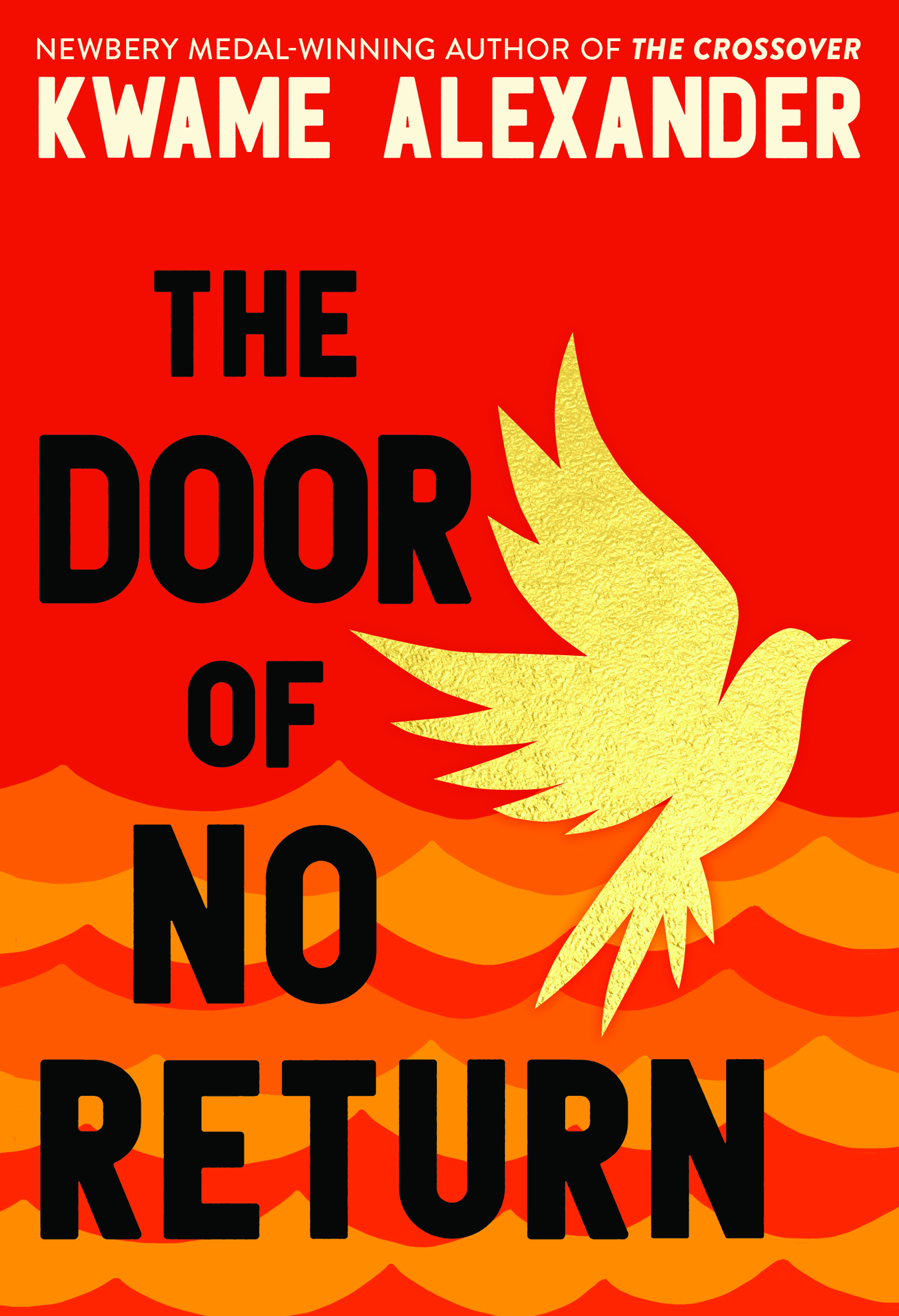 Speaking of opening doors, you visited the Cape Coast and Elmina castles. What was it like?
Speaking of opening doors, you visited the Cape Coast and Elmina castles. What was it like?
What I felt being in there is unspeakable and indescribable. This is why it was the hardest book I've ever written--how do you write this for children so that they don't leave feeling depressed, destroyed or in a dark place? I try to uplift them and so I had to try to figure out how to do that when you are in a place that makes you feel uneasy, uncomfortable, scared. I did my best to put all the feelings in the book.
The slavery aspect of the story isn't a huge part of the book.
I didn't mention the word slavery in the book, and I try not to mention it in conversations and interviews because it doesn't happen until page 302. When anyone talks about my novel, I don't want to talk about slavery. I want to talk about everything that happens up until page 302. I wrote this book to talk about our life--so that people can get an understanding that we are not slaves, we are human beings. The point of this book is not to center the experience of Black people in this tragic way.
How important is it to do the work of learning your own history, and history in general?
One of my mantras in life is, "I am the greatest. Not because I am better than anyone but because no one is better than me." I try to move through life with a certain level of confidence that I matter, and no one can define for me who I am and how much I am worth. I know my worth. I was shown, told and sang to, lectured and immersed in a household that honored and paid tribute to human beings that have tried to make the world a better place for society. Many of those human beings were Black people. My philosophy on life has come directly from the influence of my parents. What I like to call "matter-of-fact Blackness." We laugh. We love. We excel. We hope. We fail. We die just like everybody else.
You have a picture book coming out in January titled An American Story, illustrated by Dare Coulter. Tell us about this new project.
An American Story is for second grade and up, and I would say it could almost be a sequel to The Door of No Return. My point in writing An American Story is to show how unprepared teachers are at teaching slavery and how afraid they are to teach it because they're unprepared. I feel like I have figured out how to use my creativity to tell these stories in a way that will allow people to tell them with relative ease. If you read An American Story, it may feel a little uncomfortable, but your students can help you through it. I genuinely believe it's the best book I've ever written--even though I say that about every book I write. --Kharissa Kenner, children's librarian, Bank Street School for Children
Book Candy
Book Candy
A visit to the home museum of Edward Gorey... 30 years after meeting him there for tea." (via Atlas Obscura).
"The strange and supernatural" in the New York Public Library's collections.
CrimeReads showcased "9 works of dark humor perfect for Halloween."
H.P. Lovecraft's "most disturbing stories that will keep you awake at night," Cultura Collectiva noted.
Discover Great Publishers
Fall Titles From Simon & Schuster
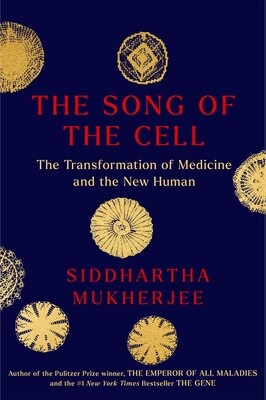 The Song of the Cell: The Transformation of Medicine and the New Human by Siddhartha Mukherjee (Scribner, $32.50)
The Song of the Cell: The Transformation of Medicine and the New Human by Siddhartha Mukherjee (Scribner, $32.50)
From the author of The Emperor of All Maladies, winner of the Pulitzer Prize, and The Gene, a #1 New York Times bestseller, comes his most spectacular book yet, about the transformation of medicine through our radical new ability to manipulate cells. Rich with Mukherjee's revelatory and exhilarating stories of scientists, doctors, and the patients whose lives may be saved by their work, The Song of the Cell is the third book in this extraordinary writer's exploration of what it means to be human. Here he tells the story of how scientists discovered cells, began to understand them, and are now using that knowledge to create new humans. He seduces you with writing so vivid, lucid, and suspenseful that complex science becomes thrilling. Told in six parts, laced with Mukherjee's own experience as a researcher, a doctor, and a prolific reader, The Song of the Cell is both panoramic and intimate—a masterpiece.
 |
|
| Siddhartha Mukherjee | |
Siddhartha Mukherjee is the author of The Gene: An Intimate History, The Emperor of All Maladies: A Biography of Cancer, and The Laws of Medicine and is the editor of Best Science Writing 2013. Mukherjee is an associate professor of medicine at Columbia University and a cancer physician and researcher. A Rhodes scholar, he graduated from Stanford University, University of Oxford, and Harvard Medical School. He has published articles in many journals, including Nature, The New England Journal of Medicine, Cell, The New York Times Magazine, and The New Yorker. He lives in New York with his wife and daughters.
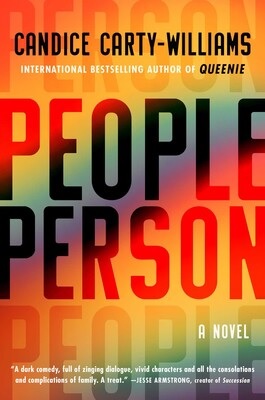 People Person by Candice Carty-Williams (Scout Press, $27.99)
People Person by Candice Carty-Williams (Scout Press, $27.99)
In this novel from the author of Queenie, Dimple Pennington is 30, and her life isn't really going anywhere. An aspiring lifestyle influencer with a terrible and wayward boyfriend, Dimple's life has shrunk to the size of a phone screen. And despite a small but loyal following, she's never felt more alone in her life. That is, until a dramatic event brings her half siblings Nikisha, Danny, Lizzie, and Prynce crashing back into her life. And when they're all forced to reconnect with Cyril Pennington, the absent father they never really knew, things get even more complicated.
 |
|
| Candice Carty-Williams | |
From an author with "a flair for storytelling that appears effortlessly authentic" (Time), People Person is a vibrant and charming celebration of discovering family as an adult.
Candice Carty-Williams was a senior marketing executive at Vintage. In 2016, she created and launched The Guardian and 4th Estate BAME Short Story Prize, which aims to find, champion, and celebrate underrepresented writers. She contributes regularly to i-D, Refinery29, Beat Magazine, and more, and her pieces, especially those about blackness, sex, and identity, have been shared globally. Follow her on Twitter and Instagram @CandiceC_W.
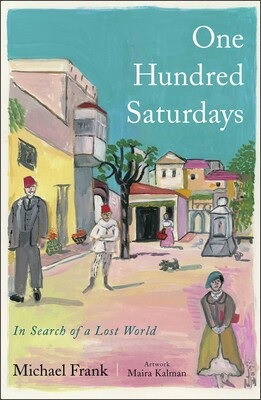 One Hundred Saurdays: In Search of a Lost World by Michael Frank (Avid Reader, $28)
One Hundred Saurdays: In Search of a Lost World by Michael Frank (Avid Reader, $28)
One Hundred Saturdays is the remarkable story of 99-year-old Stella Levi, whose conversations with the writer Michael Frank on a hundred Saturdays over the course of six years bring to life the vibrant world of Jewish Rhodes, the deportation to Auschwitz that extinguished 90% of her community, and the resilience and wisdom of the woman who lived to tell the tale.
 |
|
| Michael Frank | |
Probing and courageous, candid and sly, Stella is a magical modern-day Scheherazade whose stories reveal what it was like to grow up in an extraordinary place in an extraordinary time—and to construct a life after that place has vanished. One Hundred Saturdays is a portrait of one of the last survivors drawn at nearly the last possible moment, as well as an account of a tender and transformative friendship that develops between storyteller and listener as they explore the fundamental mystery of what it means to collect, share, and interpret the deepest truths of a life deeply lived.
Michael Frank is the author of What Is Missing, a novel, and The Mighty Franks, a memoir, which was awarded the 2018 JQ Wingate Prize and was named one of the best books of the year by The Telegraph and The New Statesman. His essays, articles, and short stories have appeared in The New York Times, Los Angeles Times, The Atlantic, Slate, The Yale Review, Salmagundi, The TLS, Tablet, and other publications. The recipient of a 2020 Guggenheim Fellowship, he lives with his family in New York City and Camogli, Italy.
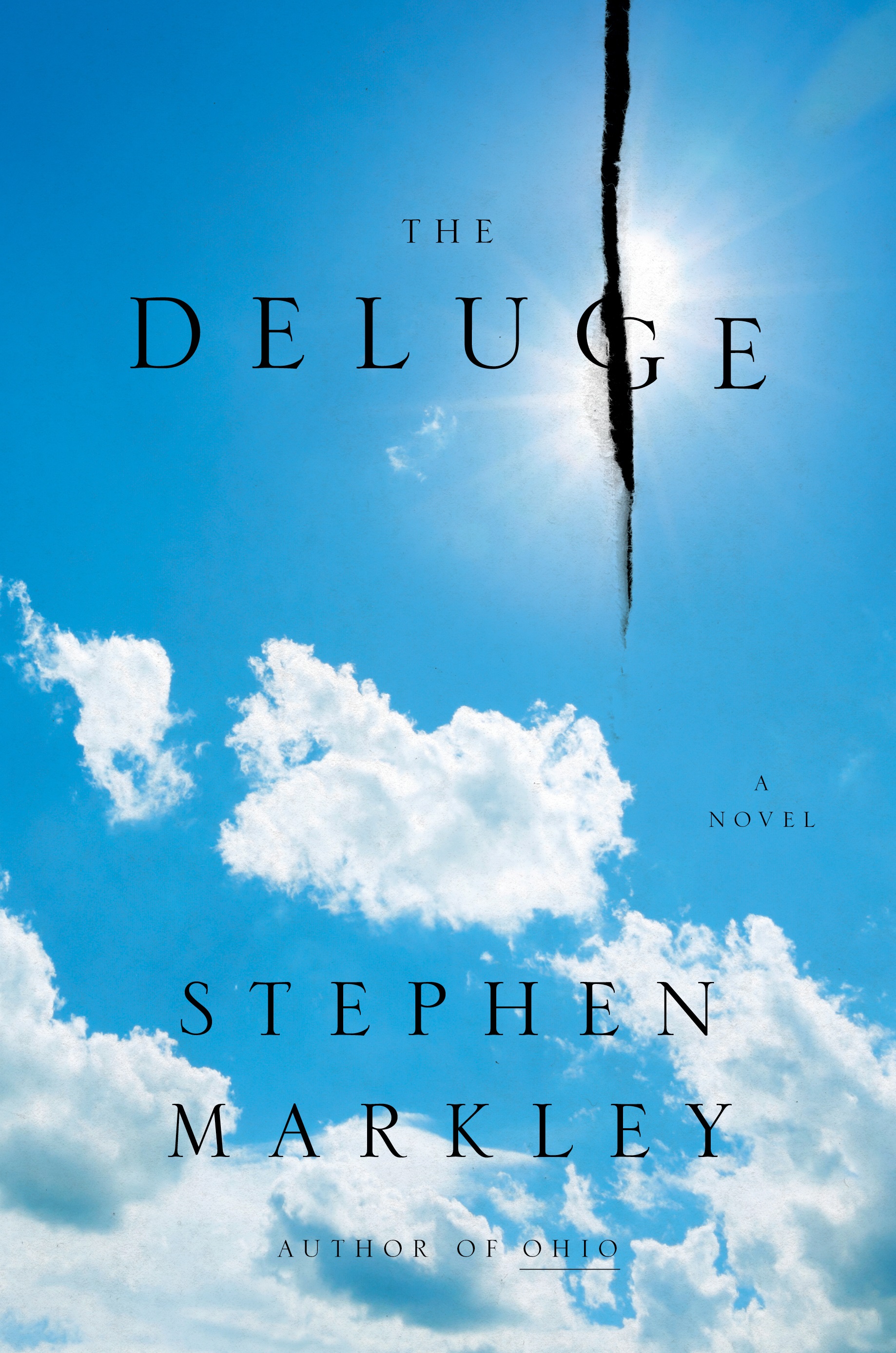 The Deluge by Stephen Markley (Simon & Schuster, $27.99, January 10, 2023)
The Deluge by Stephen Markley (Simon & Schuster, $27.99, January 10, 2023)
From the bestselling author of Ohio, this is a masterful American epic charting a near future approaching collapse and a nascent but strengthening solidarity.
In the first decades of the 21st century, the world is convulsing, its governments mired in gridlock while a patient but unrelenting ecological crisis looms. America is in upheaval, battered by violent weather and extreme politics. In California in 2013, Tony Pietrus, a scientist studying deposits of undersea methane, receives a death threat. His fate will become bound to a stunning cast of characters—a broken drug addict, a star advertising strategist, a neurodivergent mathematician, a cunning eco-terrorist, an actor turned religious zealot, and a brazen young activist named Kate Morris, who, in the mountains of Wyoming, begins a project that will alter the course of the decades to come.
 |
|
| Stephen Markley | |
Stephen Markley is the author of the acclaimed debut novel Ohio, which NPR called "a devastating masterpiece." The Deluge is his second novel. A graduate of the Iowa Writers Workshop, Markley is a writer on the hit Hulu show Only Murderers in the Building, starring Selena Gomez, Steve Martin, and Martin Short, where he received acclaim for writing a silent episode told from a deaf person's perspective. He is also adapting Ohio for HBO with the creator of Euphoria Sam Levinson. He lives in Los Angeles.
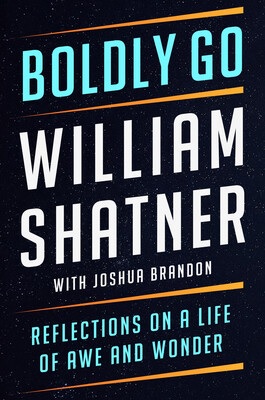 Boldly Go: Reflections on a Life of Awe and Wonder by William Shatner (Atria, $28)
Boldly Go: Reflections on a Life of Awe and Wonder by William Shatner (Atria, $28)
The beloved star of Star Trek, recent space traveler, and living legend William Shatner reflects on the interconnectivity of all things, our fragile bond with nature, and the joy that comes from exploration in this inspiring, revelatory, and exhilarating collection of essays.
By revealing stories of his life--some delightful, others tragic--Shatner reflects on what he has learned along the way to his ninth decade and how important it is to apply the joy of exploration to our own lives. Insightful, irreverent, and with his signature wit and dramatic flair, Boldly Go is an unputdownable celebration of all that our miraculous universe holds for us.
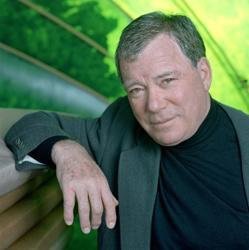 |
|
| William Shatner | |
William Shatner is the author of nine Star Trek novels, including the New York Times bestsellers The Ashes of Eden and The Return. He is also the author of several nonfiction books, including Get a Life! and I'm Working on That. In addition to his role as Captain James T. Kirk, he starred as Denny Crane in the hit television series from David E. Kelley, Boston Legal--a role for which he won two Emmy Awards and a Golden Globe.
Fall Children's Titles from Simon & Schuster
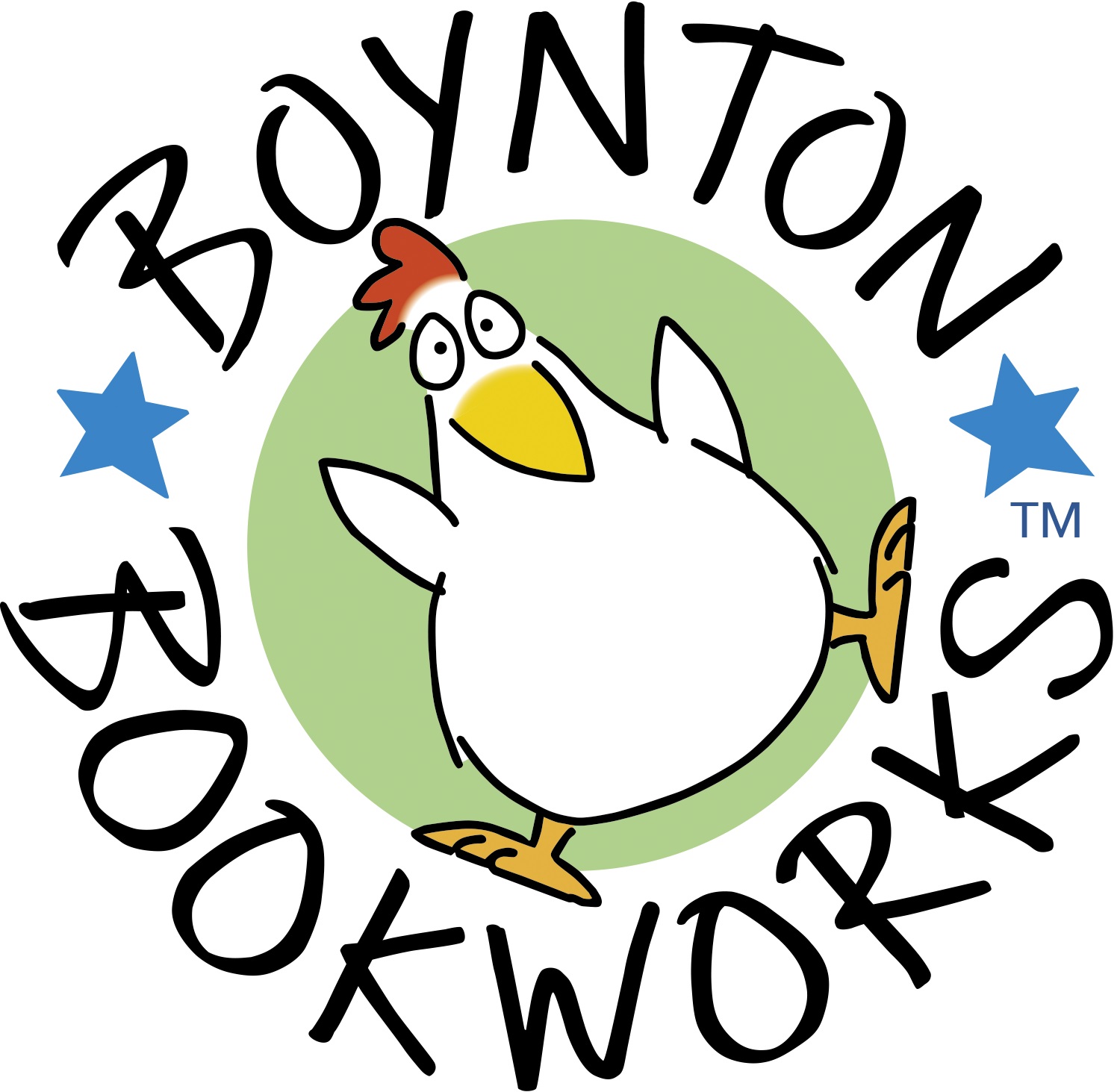 Along with becoming the new home for Boynton's entire Little Simon backlist, Boynton Bookworks is publishing its inaugural list in this fall. It includes two new board books--Pookie's Thanksgiving ($6.99) and Moo, Baa, Fa La La La La! ($6.99)--and a deluxe picture book edition of Boynton's much-loved classic Hippos Go Berserk! ($17.99), first published in 1977 and in print ever since. Boynton has completely redrawn and redesigned Hippos Go Berserk! In addition, beginning this fall, the new imprint will welcome all of Boynton's previously published titles, including brand-new editions of 22 beloved Boynton books and six renowned songbook/CDs including such multimillion-copy bestsellers as Barnyard Dance!, Snuggle Puppy!, Belly Button Book!, Birthday Monsters!, and Philadelphia Chickens.
Along with becoming the new home for Boynton's entire Little Simon backlist, Boynton Bookworks is publishing its inaugural list in this fall. It includes two new board books--Pookie's Thanksgiving ($6.99) and Moo, Baa, Fa La La La La! ($6.99)--and a deluxe picture book edition of Boynton's much-loved classic Hippos Go Berserk! ($17.99), first published in 1977 and in print ever since. Boynton has completely redrawn and redesigned Hippos Go Berserk! In addition, beginning this fall, the new imprint will welcome all of Boynton's previously published titles, including brand-new editions of 22 beloved Boynton books and six renowned songbook/CDs including such multimillion-copy bestsellers as Barnyard Dance!, Snuggle Puppy!, Belly Button Book!, Birthday Monsters!, and Philadelphia Chickens.
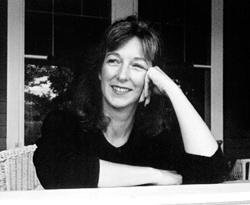 |
|
| Sandra Boynton | |
Sandra Boynton is a beloved American cartoonist, children's author, songwriter, and short film director. Her renowned books include The Going to Bed Book, Barnyard Dance!, Snuggle Puppy!, and Spooky Pookie; and for grownups, CHOCOLATE: The Consuming Passion and Christmastime. Boynton has also written and produced six albums of unconventional children's music, which include performances by Stanley Tucci, Brian Wilson, Brad Paisley, Kacey Musgraves, B.B. King, Blues Traveler, Alison Krauss, Meryl Streep, Patti LuPone, and "Weird Al" Yankovic (in a duet with Kate Winslet.) Three of Boynton's albums have been certified Gold, and Philadelphia Chickens, nominated for a Grammy, has gone Platinum. Boynton received the Lifetime Achievement Award from the National Cartoonists Society.
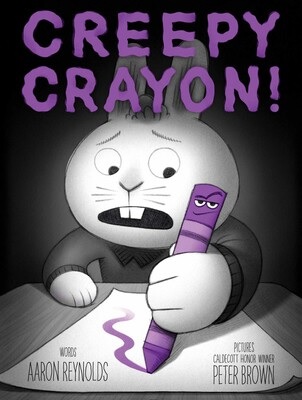 Creepy Crayon! by Peter Brown (Simon & Schuster Books for Young Readers, $18.99)
Creepy Crayon! by Peter Brown (Simon & Schuster Books for Young Readers, $18.99)
From the team behind the New York Times bestselling Creepy Carrots! and Creepy Pair of Underwear! comes the third in this hilariously spooky series about a young rabbit and his peculiar encounters--featuring a sinister crayon!
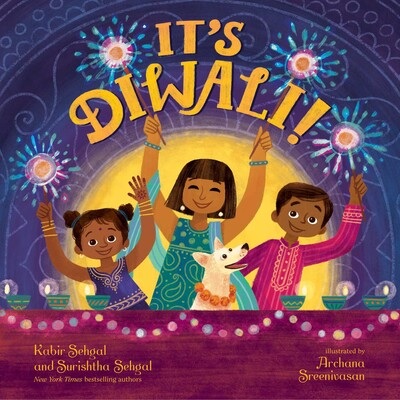 It's Diwali! by Surishtha and Kabir Sehgal (Beach Lane Books, $18.99)
It's Diwali! by Surishtha and Kabir Sehgal (Beach Lane Books, $18.99)
From the New York Times bestselling mother-son duo of beloved favorites such as Mother Goose Goes to India and Festival of Colors comes a luminous picture book inviting readers to celebrate the Indian Festival of Lights, Diwali.
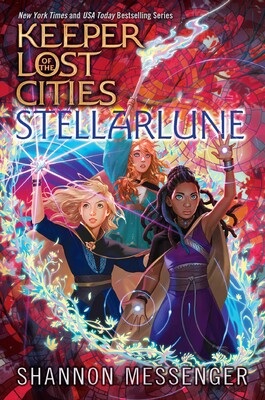 Stellarlune: Keeper of the Lost Cities #9 by Shannon Messenger (Aladdin, $21.99, November 8).
Stellarlune: Keeper of the Lost Cities #9 by Shannon Messenger (Aladdin, $21.99, November 8).
The next thrilling installment of the New York Times and USA TODAY bestselling Keeper of the Lost Cities series!
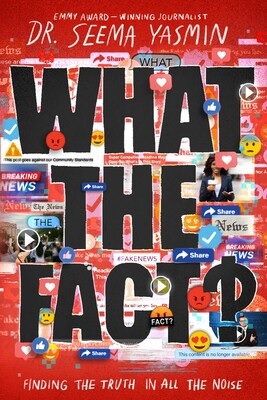 What the Fact?: Finding the Truth in All the Noise by Dr. Seema Yasmin (Simon & Schuster Books for Young Readers, $19.99).
What the Fact?: Finding the Truth in All the Noise by Dr. Seema Yasmin (Simon & Schuster Books for Young Readers, $19.99).
From acclaimed writer, journalist, and physician Dr. Seema Yasmin comes a much-needed, timely book about the importance of media literacy, fact-based reporting, and the ability to discern truth from lies.
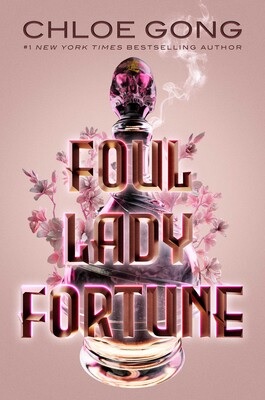 Foul Lady Fortune by Chloe Gong (Margaret K. McElderry Books, $21.99).
Foul Lady Fortune by Chloe Gong (Margaret K. McElderry Books, $21.99).
From the #1 New York Times bestselling author of These Violent Delights and Our Violent Ends comes the first book in a captivating new duology following an ill-matched pair of spies posing as a married couple to investigate a series of brutal murders in 1930s Shanghai.
Rediscover
Rediscover: Meredith Tax
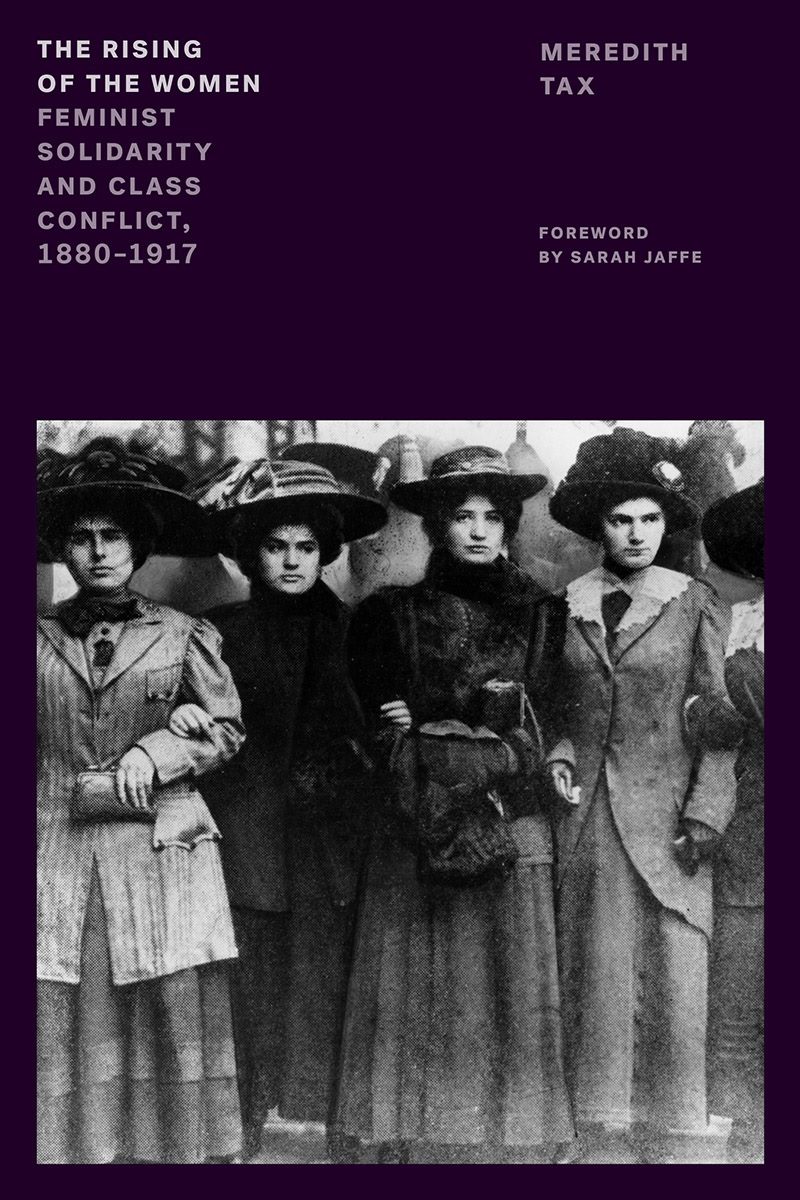 Meredith Tax, "a second-wave feminist and author whose scholarship on labor movements informed her own class-conscious activism," died September 25 at age 80, the New York Times reported. Tax "was in London studying English literature on a fellowship when the Vietnam War escalated, and she and her roommate, Ann Barr Snitow, who would go on to help found the organization New York Radical Feminists, threw themselves into the antiwar movement." She met American labor organizer Jonathan Schwartz, who would become her husband, and they eventually moved to Boston, where Tax and others started Bread and Roses, a socialist-feminist collective.
Meredith Tax, "a second-wave feminist and author whose scholarship on labor movements informed her own class-conscious activism," died September 25 at age 80, the New York Times reported. Tax "was in London studying English literature on a fellowship when the Vietnam War escalated, and she and her roommate, Ann Barr Snitow, who would go on to help found the organization New York Radical Feminists, threw themselves into the antiwar movement." She met American labor organizer Jonathan Schwartz, who would become her husband, and they eventually moved to Boston, where Tax and others started Bread and Roses, a socialist-feminist collective.
She began researching the labor and suffrage movements of the late 19th century, which led to her first book, The Rising of the Women: Feminist Solidarity and Class Conflict, 1880-1917 (1980). It would take 10 years for the book to find a publisher, during which Tax joined the October League (from which she was expelled for criticizing its treatment of women), worked on an assembly line in a Zenith factory in Chicago, then as a nurse's aide. She contributed an essay to the feminist journal Notes From the Second Year: Women's Liberation. In 1977, Tax, Alix Kates Shulman and others formed a political action group called the Committee for Abortion Rights and Against Sterilization Abuse. "She never stopped being a leftist feminist," Shulman told the Times. "She never abandoned her commitment to the working class and to the poor."
Tax's other books include the historical sagas Rivington Street (1982) and Union Square (1988), as well as a children's book, Families (illustrated by Marylin Hafner), "that in 1994--13 years after it was published--was banned in Fairfax, Va., for its depiction of divorce and of single, gay and lesbian parenting," the Times noted. With Grace Paley, she was a founder of the International PEN Women's Writers Committee, and went on to run other international organizations devoted to free speech and women's rights, including two groups that supported an all-female Kurdish militia in northern Syria. The Road Unforeseen: Women Fight the Islamic State (2016), her fifth book, is an account of that militia's actions. The Rising of the Women: Feminist Solidarity and Class Conflict, 1880-1917 was republished in paperback earlier this year by Verso ($29.95).


